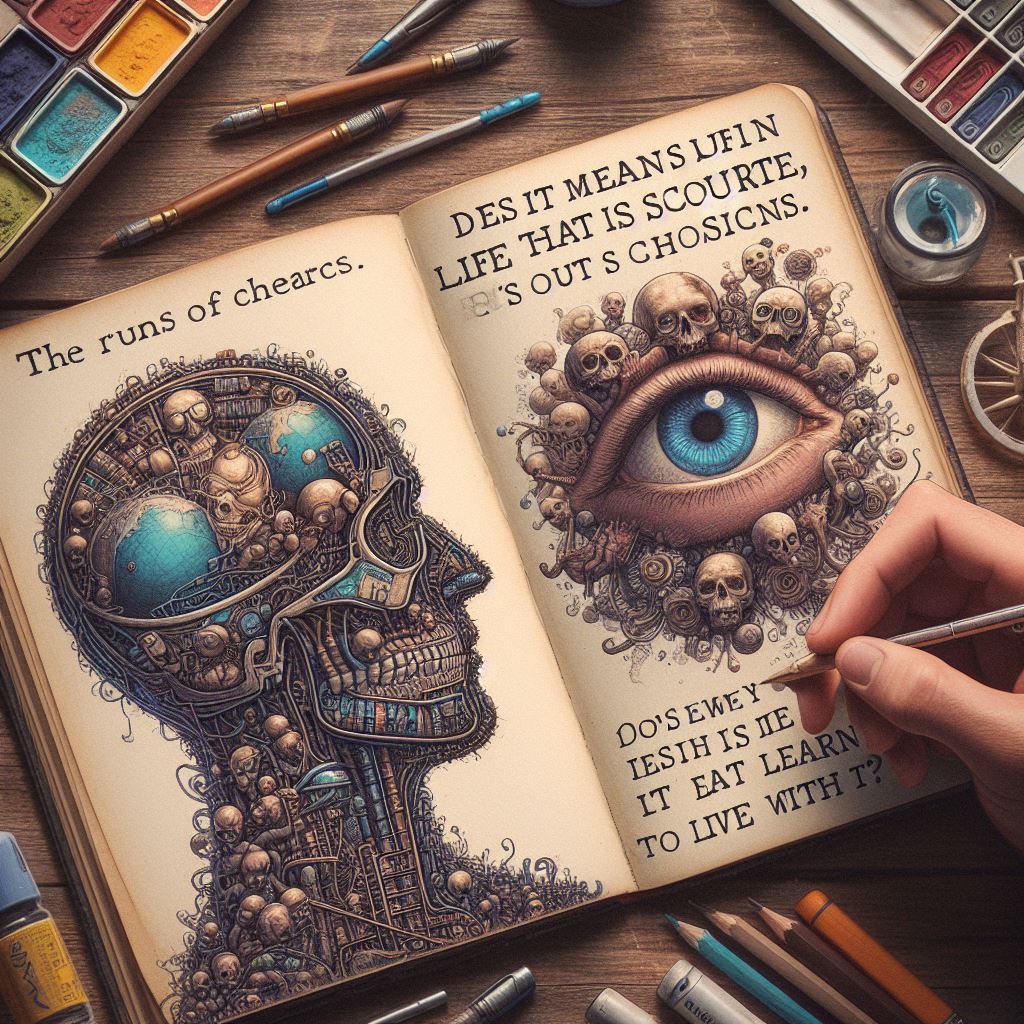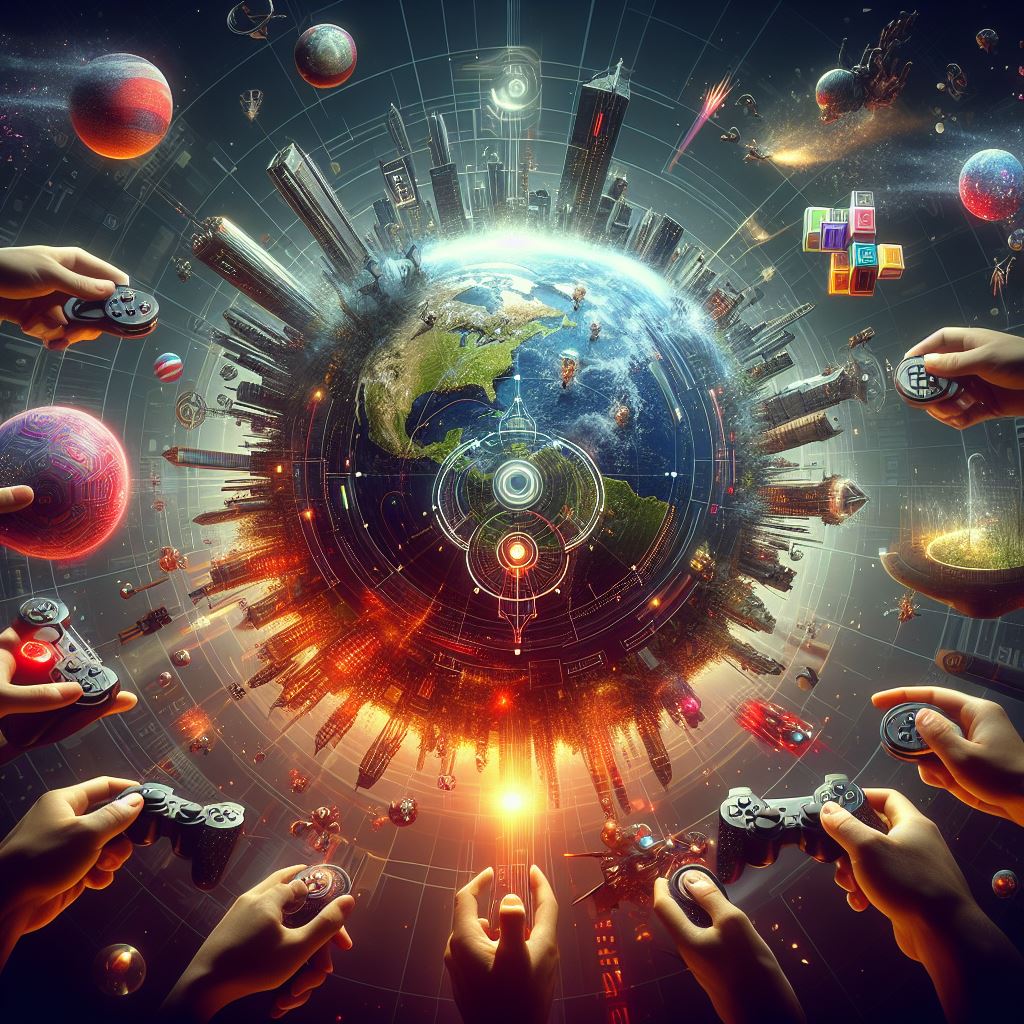The possibilities are endless. Does it mean we run out of choices
Endless possibilities can sometimes lead to a paradoxical feeling that we are running out of choices. Today, I attended an enlightening session at the Class of Honor. Although the session was rich in information, I felt detached from the material. This disconnect pushed me to reflect on my learning and share my thoughts here.
The professor drew a striking contrast between animal hunting and treasure hunting during the session. While this analogy might not resonate with everyone, it was particularly insightful. However, my interpretation might differ from my peers and the professor's intended message. This disparity is partly due to the physical distance imposed by the COVID pandemic, which has created a barrier to effective communication.
From my perspective, the most profound and impactful ideas often spring from the most unexplored territories of thought. Conceptual problems, when discussed, are perceived and interpreted differently by every individual. My learning today stands as a testament to this. It differs from the professor's presentation, shaped by my thoughts, beliefs, and experiences. While I agree with the principles of economics that I learned today, the unavoidable physical distance between the professor and myself has posed a challenge to obtaining a deeper understanding.
In the practical world, life may only sometimes reward hard work directly. Nonetheless, every job in a performance society carries a certain degree of dignity and respect. From an economic standpoint, I understand the decision-making process. However, I wonder whether every decision we make should have an economic motive at its core. Monetary terms undeniably wield a significant influence over humanity. Still, a life solely defined by monetary terms seems manageable but lacks depth and diversity.
The professor discussed the idea of scarcity in human belongingness, an idea that left me contemplating the differences in experiences of scarcity among various social and economic groups. The scarcity experienced by human beings is not necessarily tied to wealth but rather to aggressive prototypes. Everyone can share acts of love, but human nature possesses a divine quality. This divinity carries the ability to transform scarcity into opportunity.
Trust and belief, two of the most fundamental aspects of relationships, are also subject to scarcity, albeit in different contexts. Trust is scarce when considering a street vendor's sense of belonging, while belief is a rare commodity among the literati. The elite often trades the scarcity of belief for existential threat, making them the "untrue elite." Trust should always be available in a cognizant government that inculcates policies. However, beliefs can indeed become scarce.
As the professor humorously pointed out, typographical errors can be seen as a manifestation of scarcity. But it can be a mistake. It's simply a different form of scarcity. Every individual has 'typo errors' woven into the fabric of their life. These errors are scarce elements bearing divine significance. These errors are scarce and should be tackled with practicality. However, a scarcity of trust presents a dangerous threat to human behavior, languages, and religions. Governments should foster trust as a consistent policy, making it a part of human birth rather than a typo error.
Reflecting on what I learned, I've come to understand that human life itself is not scarce; it's the existence of human life that is scarce. This complexity is something we must learn to live with and navigate. This reflection represents a fraction of my thoughts but underscores the importance of learning. Learning is a personal asset, a treasure that we should hold dear.
As I contemplate the limitless landscape of possibilities, I'm struck by the notion that understanding our choices within this vast expanse is akin to navigating a vast ocean. There are countless routes to take, each leading to different destinations, and making a choice can seem overwhelming. But we still have choices. Instead, it suggests that we need to develop better decision-making skills to understand better our options and the potential consequences of our choices.
The professor's hunting analogy resonates with me as I delve deeper into this concept. Some people approach decision-making like animal hunting, rushing headlong into the chase without considering the potential outcomes. Others approach it like treasure hunting, taking the time to understand the landscape and carefully plotting their course. This analogy is not only insightful, but it also offers a valuable perspective on our daily lives and the choices we make.
Moreover, I've realized a marked distinction between understanding a concept in theory and applying it in practice. While I agreed with the economic principles shared during the session, the practical application of these principles can be quite different. The ongoing pandemic has further emphasized this, creating physical and emotional distances that hinder clear communication and understanding. This has made me realize that we need to strive for a deeper, more nuanced understanding of these principles, one that transcends the theoretical and delves into the practical.
Life's complexity cannot be reduced to mere economic terms. While monetary elements play a significant role in our lives, they can't define the entirety of the human experience. The professor explained that scarcity is not just about wealth or material possessions. It's a broader concept that reflects various aspects of human nature and societal structures.
Trust and belief, for instance, are scarce commodities in today's world. Trust is a scarce shared value among street vendors, while belief is in short supply among the elite. These observations suggest that scarcity is not just about physical or tangible resources but also the intangible elements that bind society together.
Similarly, mistakes or 'typo errors,' as the professor humorously referred to them, should not be seen as failures. Instead, they should be viewed as scarce elements that provide opportunities for learning and growth. However, a scarcity of trust or belief can harm societal harmony and cohesion. It's a threat that needs to be addressed by promoting understanding, empathy, and mutual respect.
As I navigate this vast ocean of possibilities, I've realized that the scarcity we must address is more than just economic resources or human life. It's about the scarcity of understanding, empathy, and mutual respect in society. We must learn to value these elements and shape our choices accordingly. This is my takeaway from today's session: a perspective worth cherishing and sharing with others.
Please share your valuable feedback
in the comments section.....
Our
company keeps things running smoothly and efficiently with the convenience of
cloud-based Google Workspace programs. Google Docs lets you work and save on
Google Drive, Hangouts lets you video chat, Gmail gives you a professional
email, and Calendar lets you organize – from anywhere, anytime. You should also
try it and see how it can help your business. Google Workspace is offering a
14-day trial. Sign up using my link, and I will give you a discount. Turn
your dream into reality with Google Workspace.




Comments
Post a Comment